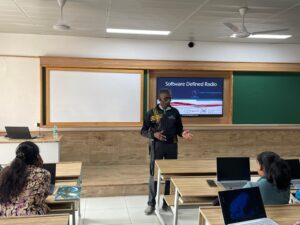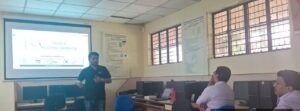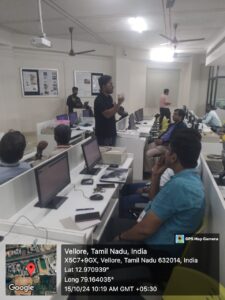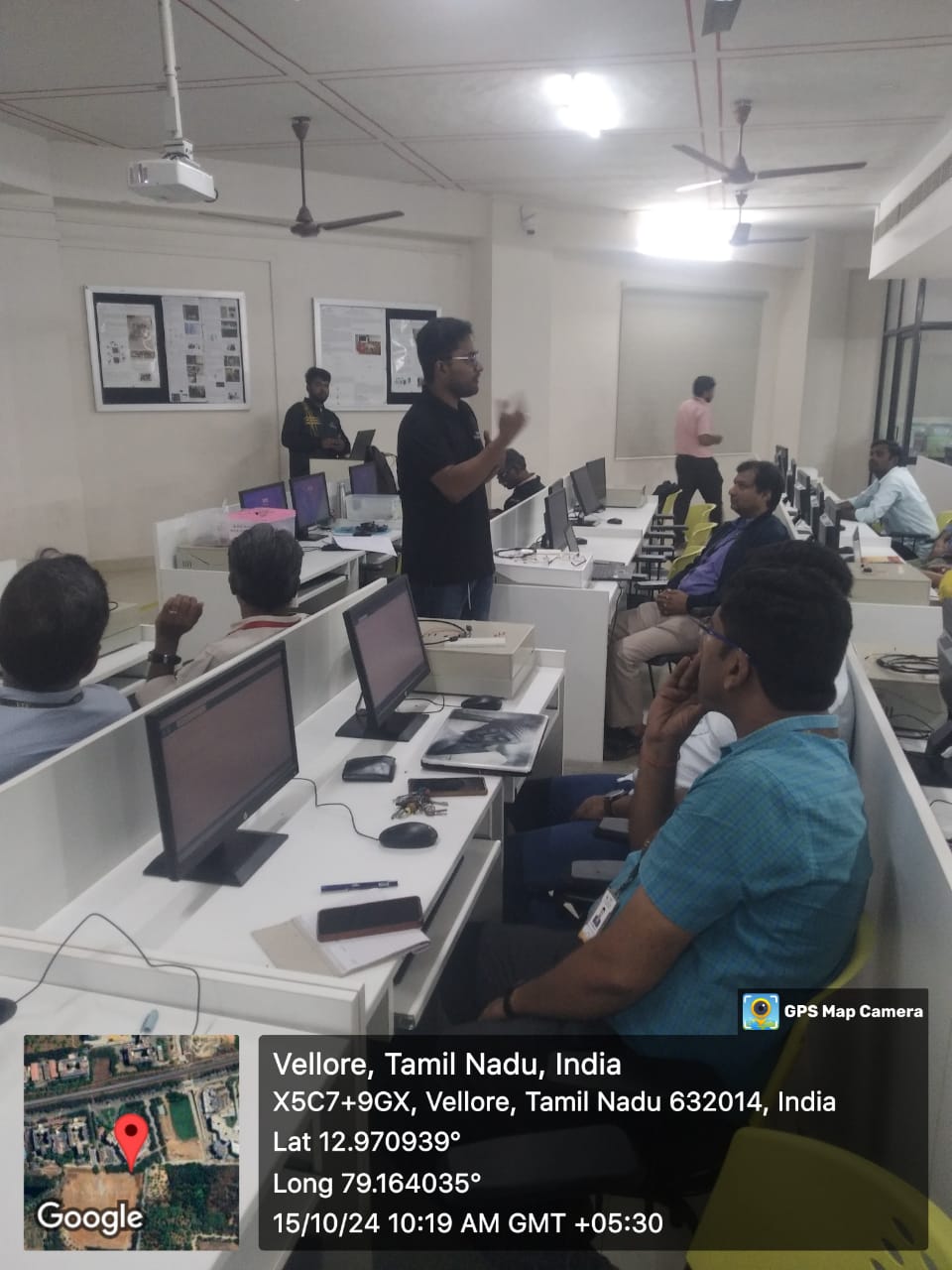
Tenet Technetronics had the opportunity to conduct an engaging workshop on the Internet of Things (IoT) at VIT. This workshop brought together passionate faculty members from the IT department, eager to dive into the world of IoT and explore its vast potential. Under the guidance of our expert facilitators, Sathurappan N, Pandidurai, Prashant , participants gained valuable insights into IoT concepts and hands-on experience with cutting-edge technology.
Workshop Overview
The workshop agenda was meticulously crafted to cover key aspects of IoT, ensuring a comprehensive understanding for all attendees. Here’s a brief overview of the sessions:
Introduction to IoT Concepts: The workshop kicked off with an introduction to the fundamental concepts of IoT, exploring its impact on various industries and daily life. Participants learned about the interconnectedness of devices and the transformative potential of IoT solutions.
Hardware Overview of ESP32: The ESP32 microcontroller was highlighted for its versatility in IoT applications. Known for its dual-core processor, built-in Wi-Fi, and Bluetooth capabilities, the ESP32 serves as an ideal platform for a range of projects—from home automation to industrial monitoring. Its ability to handle multiple tasks simultaneously allows for complex applications that require real-time data processing and communication. For more on the ESP32, visit Espressif’s official documentation.
Thingsboard IoT Platform: Participants were introduced to the Thingsboard IoT platform, a powerful tool for managing IoT devices and data. Thingsboard facilitates the collection, visualization, and analysis of data from connected devices. Its open-source nature allows for extensive customization, enabling users to tailor solutions to meet specific needs. For an overview, check out Thingsboard’s official site. The fact that the community edition is available makes it extremely useful to cover the concepts with ease.
IoT Protocols: Understanding the various IoT protocols is essential for seamless communication between devices. The workshop emphasized MQTT (Message Queuing Telemetry Transport) as a lightweight messaging protocol designed for low-bandwidth, high-latency environments. Participants learned about its publish-subscribe model, which allows for efficient data transmission in IoT systems. Other protocols, such as HTTP and CoAP, were also discussed for their roles in different applications. For a deeper understanding of MQTT, refer to the MQTT 3.1.1 Specification.
Security Aspects: With the rise of IoT, security concerns have become paramount. This session addressed best practices for securing IoT devices and networks, including the use of encryption, secure authentication, and regular software updates. Understanding these security measures is crucial to protect sensitive data and maintain user trust.
Hands-On Sessions: The highlight of the workshop was the hands-on experience using the ESP32. Participants engaged in practical tasks such as implementing MQTT for data transmission, creating data dashboards, and visualizing sensor data. This interactive segment solidified their understanding of IoT applications in real-world scenarios. Teaching hands-on skills is vital; it allows participants to apply theoretical concepts to practical challenges, fostering confidence and competence in their abilities.
The Role of MCUs and Cloud Platforms
Microcontroller units (MCUs) like the ESP32 play a critical role in the IoT ecosystem. They serve as the brain of connected devices, processing data and facilitating communication. The ESP32’s ability to handle Wi-Fi and Bluetooth makes it a versatile choice for developers, enabling them to create a wide range of applications.
Cloud platforms like Thingsboard are essential for managing and analyzing the vast amounts of data generated by IoT devices. They provide a centralized location for data collection, visualization, and device management, simplifying the process of developing IoT solutions. By leveraging cloud technologies, developers can scale their applications efficiently and integrate advanced analytics to derive actionable insights from the data collected.
The Importance of Protocols
Understanding IoT protocols is crucial for effective communication within IoT networks. MQTT stands out as a preferred choice for many IoT applications due to its lightweight nature and efficiency. Mastering such protocols empowers developers to create robust and responsive IoT systems that can operate reliably in diverse environments.
A Heartfelt Thank You
We would like to extend our gratitude to the faculty members from the IT department at VIT for their enthusiastic participation and engagement throughout the workshop. Your commitment to learning and collaboration is what makes such initiatives successful.
Looking Ahead
As the world continues to embrace IoT technologies, Tenet Technetronics remains dedicated to providing quality training and workshops that empower professionals to harness the power of connectivity. We look forward to future opportunities to collaborate and explore the exciting possibilities that IoT offers.
In a landscape where technology is constantly evolving, embracing the Internet of Things is not just a trend—it’s the future. Join us as we navigate this exciting journey together!
Here are some snaps from the workshop
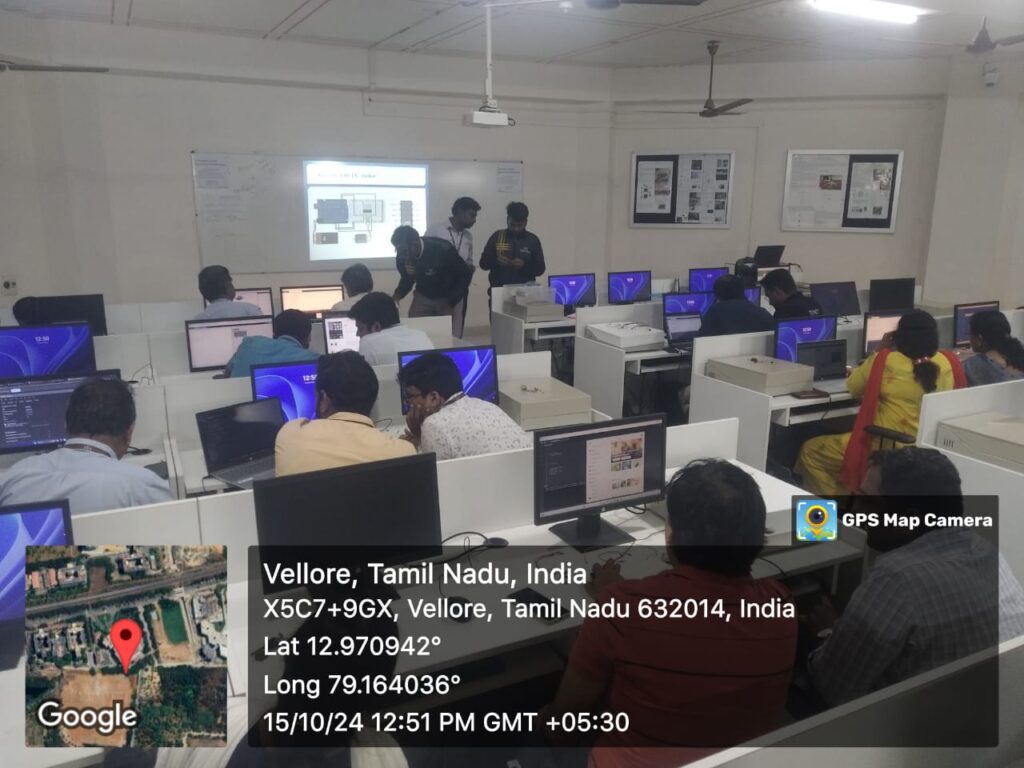
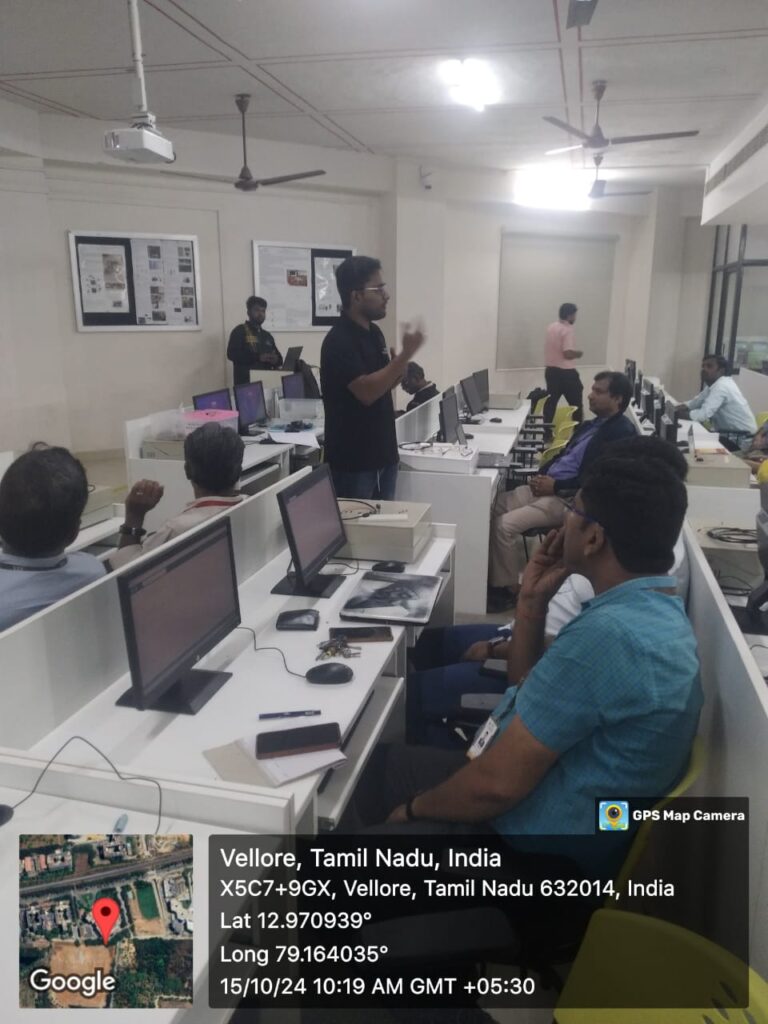
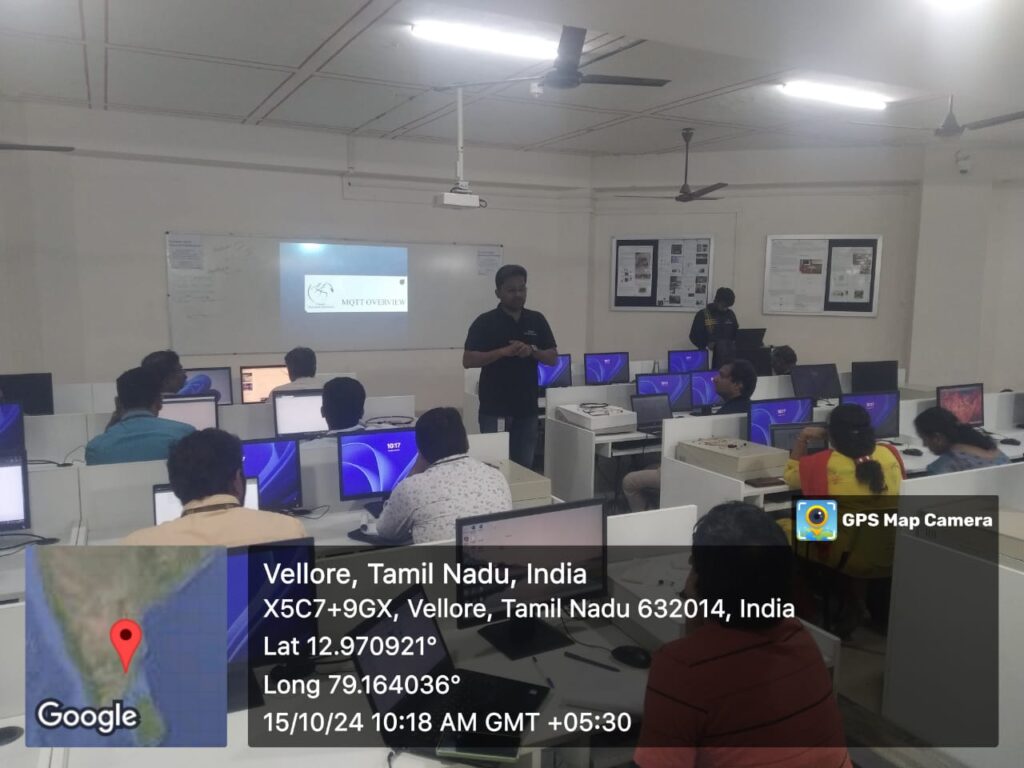
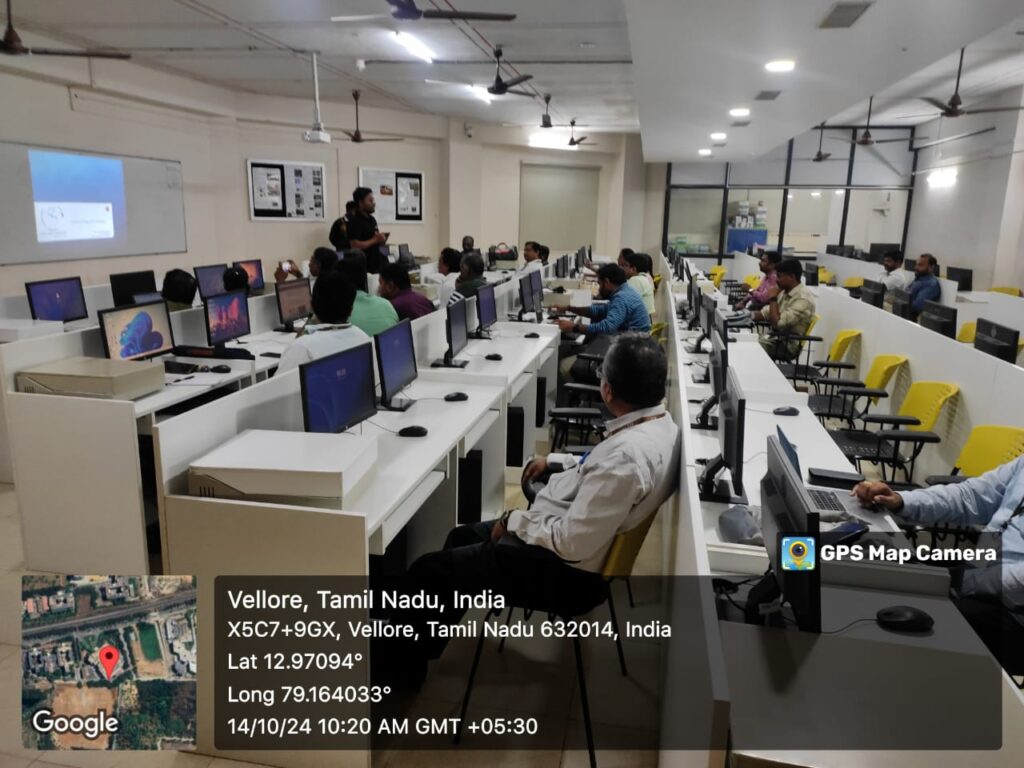
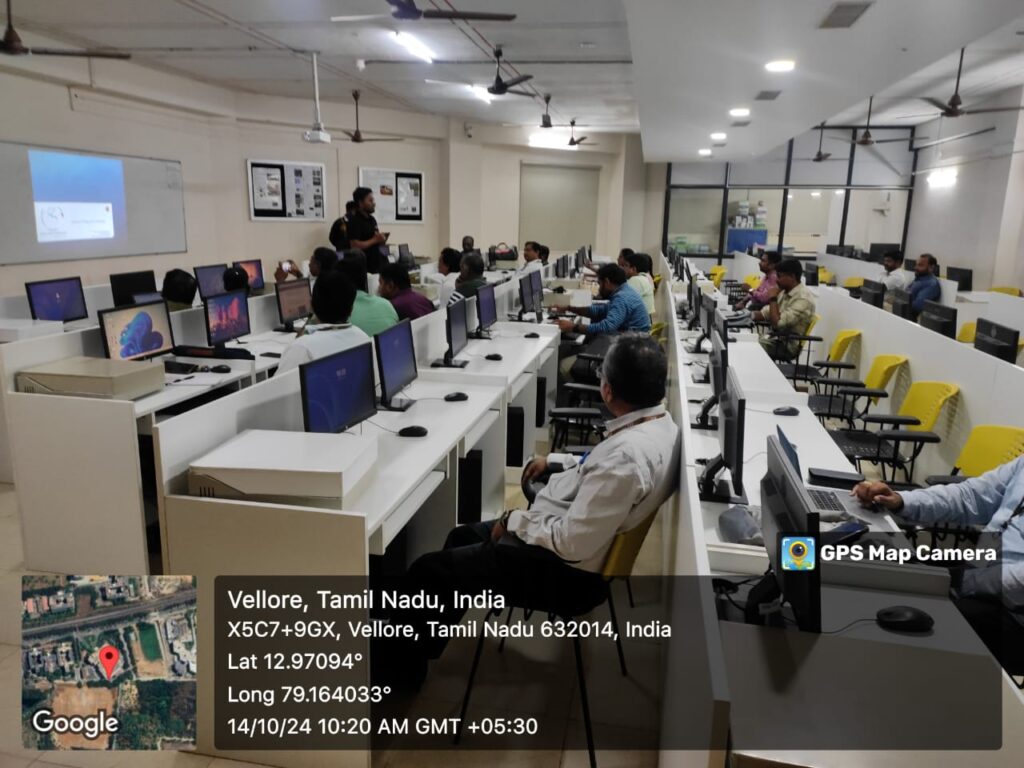
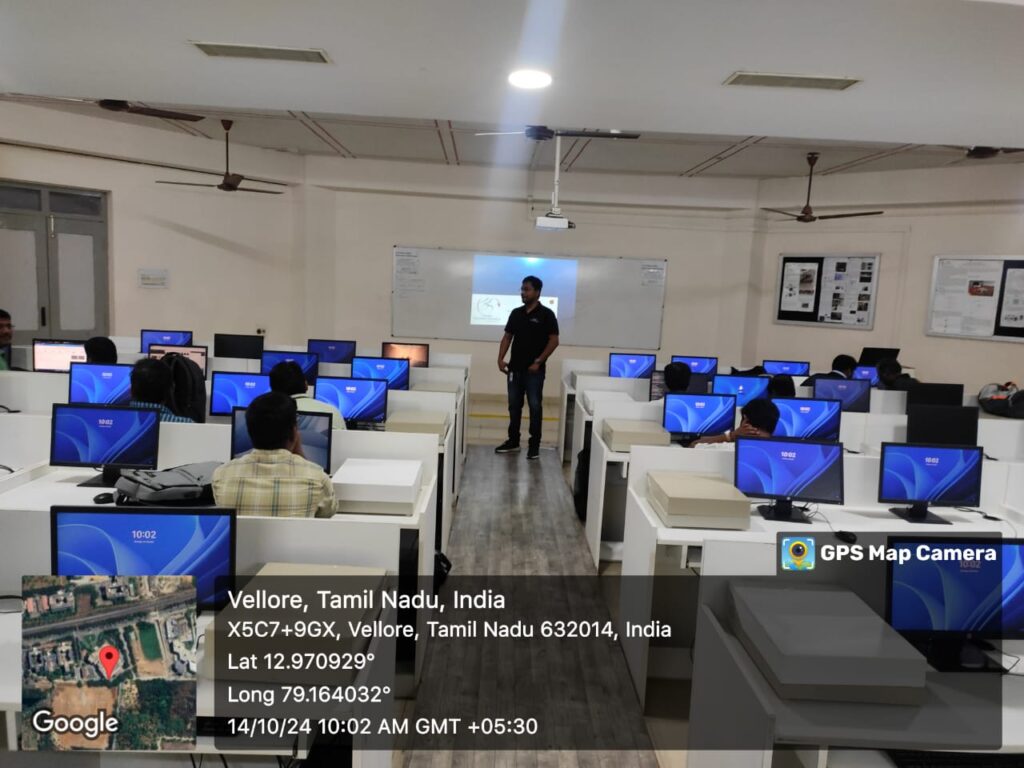
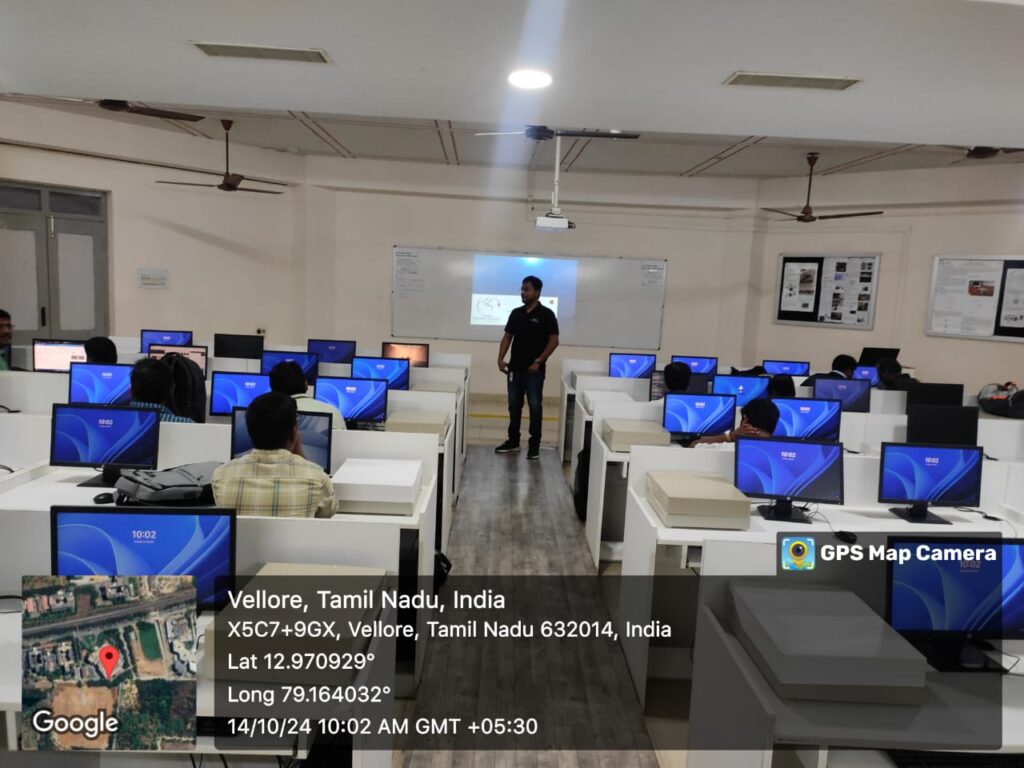
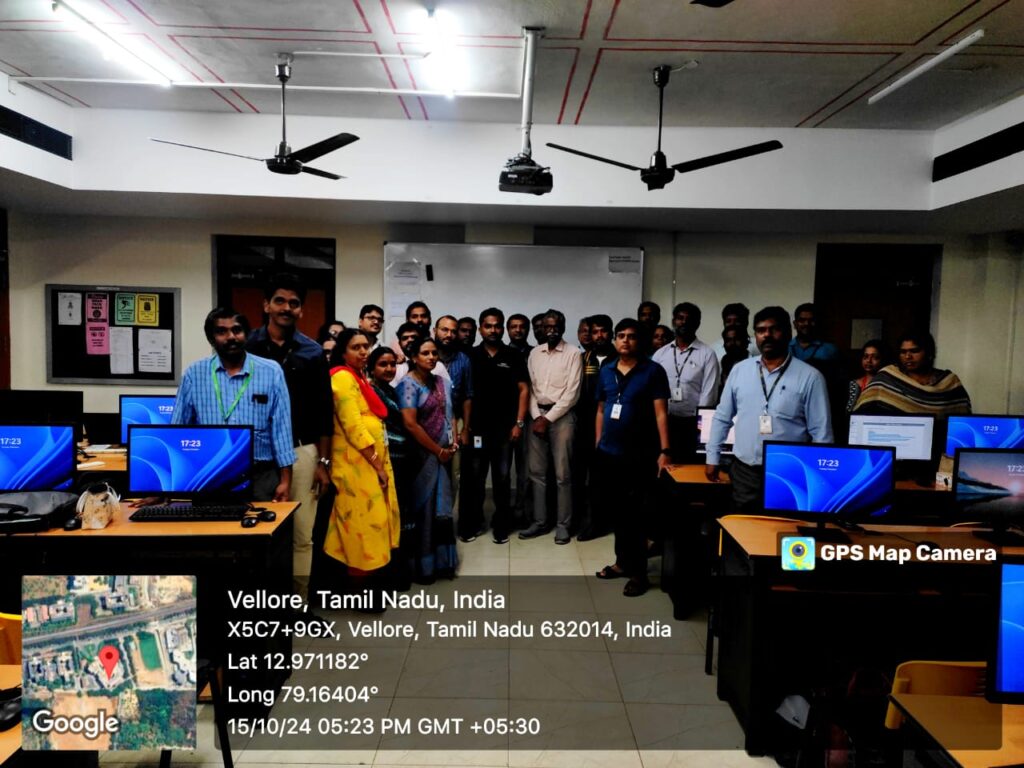
We invite colleges and institutions interested in hosting similar workshops on the Internet of Things or other cutting-edge technologies to reach out to us. At Tenet Technetronics, we are passionate about empowering educators and students with hands-on knowledge and skills that are essential in today’s tech-driven world. For inquiries or to discuss potential collaborations, please contact us at info@tenettech.com. Let’s work together to inspire the next generation of innovators!

